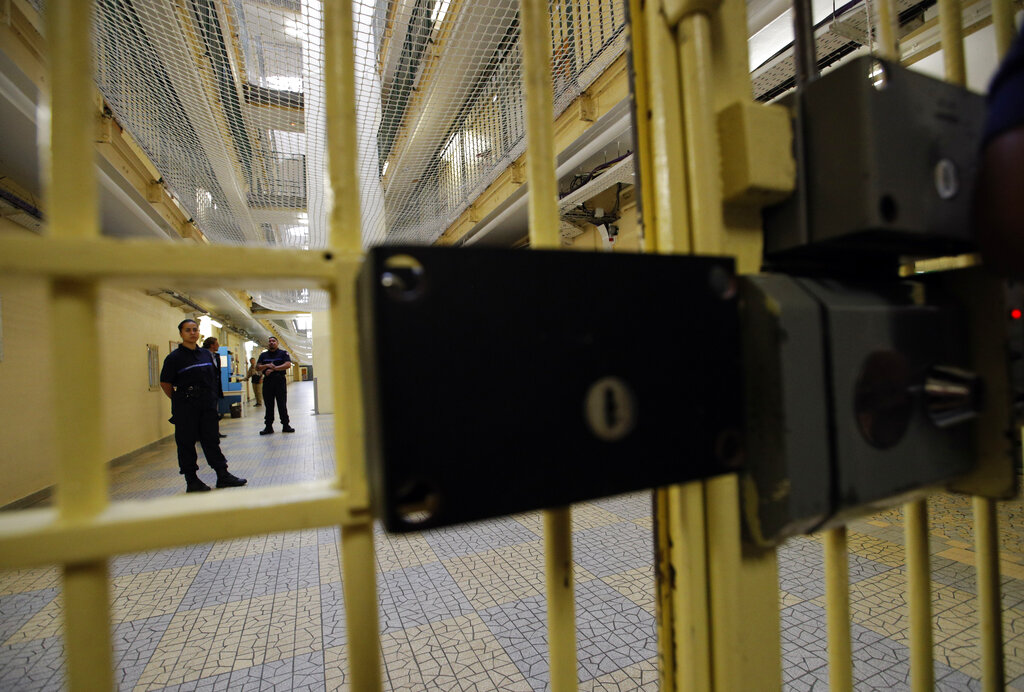In numerous German federal states, the prison population is made up of more than 50 percent foreigners, with the cost of these prisoners totaling €2 billion a year, according to an exclusive report from the Austrian news outlet Freilich.
Already in mid-July, German state media outlet SWR reported that for the first time, more than half of all prisoners in the southern state of Baden-Württemberg are foreigners. Currently, this figure stands at 50.8 percent. Freilich decided to look into the situation in other German states and found that five others also feature prison populations that are more than 50 percent foreign.
The state with the highest proportion of foreigners is Hamburg, which stands at 57.8 percent.
Other states, such as North Rhine-Westphalia, which is Germany’s most populous state, may not reach 50 percent, but the numbers are still extremely high, at 40.4 percent. The top offenders are Turks, Poles, Syrians, Moroccans and Romanians. In Bavaria, the second-largest state by population, 51.1 percent of the prison population is foreign, which includes 4,965 non-German nationals.
It is important to note that these statistics do not include those with a migration background. For instance, there is no data differentiating between ethnic Germans and Middle Easterners born in Germany. The data only shows if the perpetrator has a German passport or not. Other nations, such as Denmark, contain exact crime data not only on foreigners but also second-generation Danish citizens with a foreign background, with that data showing that this generation has higher crime rates than the first one.
In Hesse, 51.4 percent of the prison population is made up foreigners, equaling 2,245 prisoners. The largest groups come from Algeria and Morocco, but other top groups include Turks, Romanians, and Afghans, according to the Ministry of Justice.
As of July 22, 2024, Berlin featured 2,024 foreign prisoners, representing 56.4 percent of the total number, which stands at 3,588. A spokeswoman told Freilich that the largest groups are Poles, Turks, Serbians, and Georgians.
In Bremen, the smallest federal state, the number of foreign prisoners totaled 56 percent.
Other federal states, especially those featuring a smaller share of foreigners, have lower numbers, including Lower Saxony, which has 37.6 percent of the prison population made up of foreigners, Rhineland-Palatinate with 33.9 percent; Saxony at 43.2 percent; Schleswig-Holstein at 34.6 percent, Brandenburg at 36.8 percent; Saxony-Anhalt at 21.4 percent; Saarland at 30.7 percent; and Mecklenburg-Western Pomerania at 22.1 percent.
Thuringia has the lowest proportion of foreign offenders, making up 15.9 percent of the population out of a total of 1,072 prisoners, although Freilich notes this information dates from older sources.
Soaring costs and calls for reform
Freilich notes that “the accommodation of prisoners places a considerable burden on public coffers and taxpayers. This is also shown by the calculations carried out as part of the research. For all federal states together, the total cost of accommodating prisoners is around €4.137 billion per year, of which around €1.815 billion is spent on foreign prisoners in the correctional facilities of the 16 federal states.”
The Alternative for Germany (AfD) party says the figures reflect the failed policies of the older parties.
“Around 15 percent of people living in Germany are foreigners. However, their share of suspects, convicted persons and prisoners is disproportionately high. Once again, official figures prove that the migration policy of the old parties has completely failed,” said deputy domestic policy spokesman of the AfD parliamentary group, Martin Hess, who was also a police officer in Baden-Württemberg for 27 years.
“What we are experiencing here is a deliberate exploitation of our security by a government that is constantly proving to be a total failure.”
Hess said only a 180-degree turn in migration policy, as the AfD has been demanding for years, will improve the security situation.
“We must finally take decisive action against the escalating crime by foreigners – also for financial reasons, because every prisoner is an enormous burden on the public purse and therefore on the taxpayer,” he added. “In addition, it must become common practice to consistently deport illegal immigrants in order to prevent them from committing crimes. Because remigration is security. It is no longer acceptable for citizens to be let down by those in political positions of responsibility.”
According to Freilich’s data, the same problem is presented in other nations, including Austria, where 47.2 percent of all prisoners are foreigners, including 1,884 from EU countries and 3,038 from non-EU countries.
The Council of Europe’s Annual Criminal Statistics on the Prison Population for 2023 notes that 27 percent of all prisoners in the EU have a foreign background; however, this data also does not record the migration background of citizens. This data is also skewed by the inclusion of Central and Eastern European nations, which have very few foreigners in comparison to Western European nations.
In Luxembourg, 77.7 percent of the population is made up of foreigners, while in Switzerland, this figure is 71 percent.






